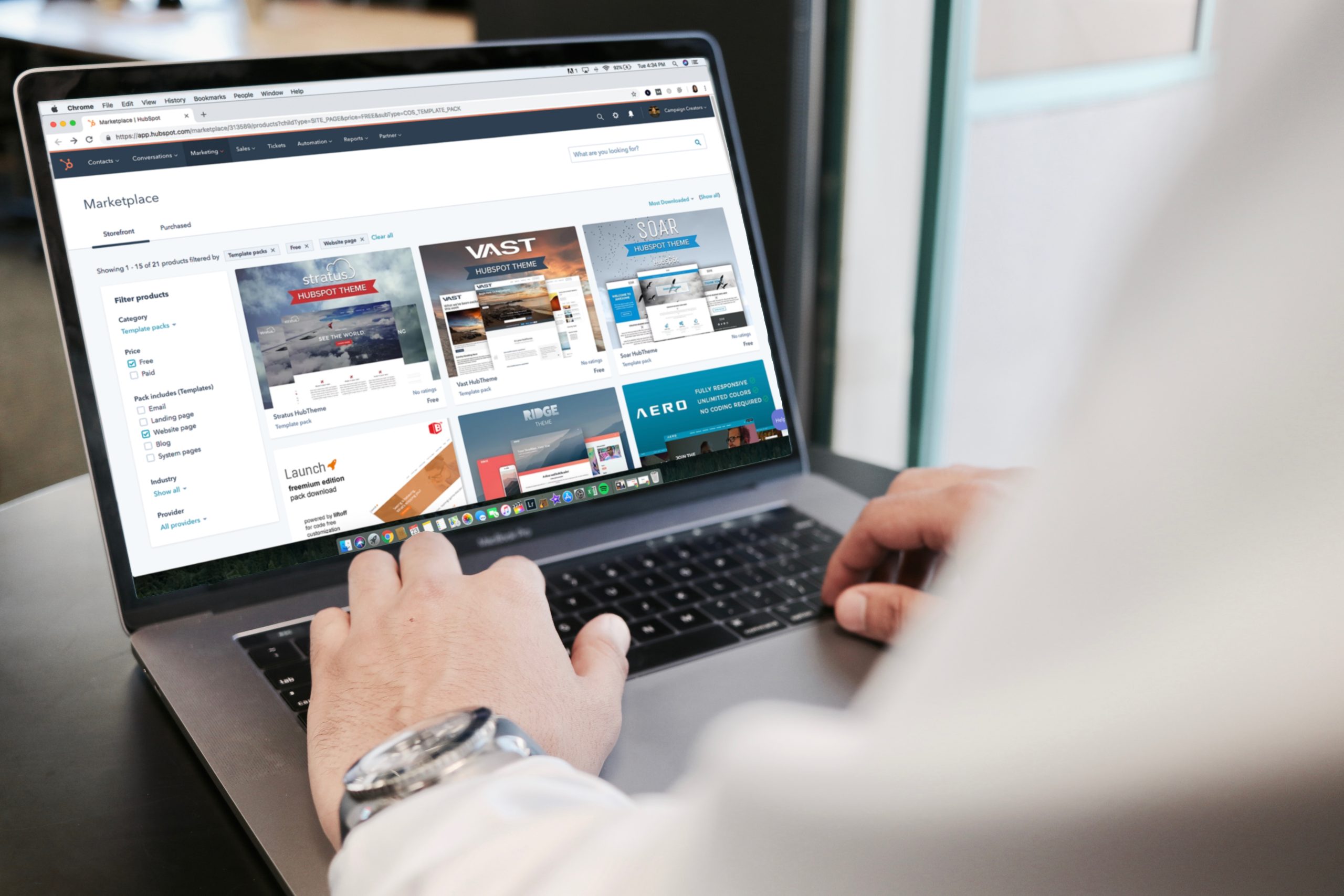In today’s fast-paced digital age, consumers are constantly bombarded with an overwhelming amount of content. From social media posts to email newsletters, it can be challenging for brands to cut through the noise and capture the attention of their target audience. However, by harnessing the power of personalization, businesses can create a unique and tailored experience for each customer. In this article, we will explore how companies are bringing together data analysis, artificial intelligence, and customer insights to deliver personalized content that resonates with individuals on a deeper level. By understanding the importance of catering to individual preferences and interests, organizations can build stronger relationships with customers and drive increased engagement and loyalty.
Contents
The Importance of Personalized Content
Personalized content has become a necessity in the digital age. With so much information available at our fingertips, customers are demanding content that speaks directly to them and addresses their unique needs and interests. In fact, studies have shown that personalized content can significantly increase engagement and conversion rates.
One of the key reasons personalized content is so important is because it helps build trust with your audience. When you deliver personalized content that is tailored to their specific preferences and pain points, customers feel understood and valued. This creates a deeper connection between your brand and the consumer, making them more likely to remain loyal and advocate for your business.
Moreover, personalized content allows you to stand out from the competition by offering a truly unique experience for your customers. Instead of bombarding them with generic messages that may not resonate with their individual needs, you can provide relevant information that grabs their attention and keeps them coming back for more.
By investing in delivering personalized content every time, businesses can reap the benefits of increased customer satisfaction, loyalty, and conversions. It’s no longer enough to rely on mass marketing tactics; today’s consumers want to be seen as individuals with unique preferences. Embrace the power of personalization to unlock incredible growth opportunities for your business.

Understanding Your Audience: Collecting Data and Insights
Understanding your audience is key to delivering personalized content that resonates with them every time. Collecting data and insights about your audience can provide valuable information that helps you better understand their preferences, interests, and behaviors. This understanding enables you to tailor your content strategy and create relevant experiences that engage and connect with your target audience.
One effective way to collect data on your audience is through the use of analytics tools. These tools allow you to track various metrics such as website traffic, social media engagement, and email campaign performance. By analyzing this data, you can gain insights into which types of content are most popular among your audience, what topics they are interested in, and how they interact with your brand online.
Another method to gather insights into your audience is through surveys or feedback forms. These direct forms of communication allow you to ask specific questions about their needs, preferences, or satisfaction with your content. Additionally, social listening tools can help monitor conversations happening around specific keywords or topics related to your niche. This can provide valuable information on what people are saying about relevant subjects and help guide the creation of targeted content tailored to addressing those discussions.
In conclusion, collecting data and insights about your audience plays a crucial role in delivering personalized content consistently. Analytics tools track performance metrics while surveys or direct feedback forms enable a more direct line of communication with the target market.
Content Creation: Tailoring for Individual Preferences
When it comes to content creation, one-size-fits-all is a thing of the past. In today’s digital landscape, tailoring content for individual preferences has become crucial for successful engagement and conversion rates. Gone are the days when brands could rely on generic messaging to reach their audiences. With an overwhelming amount of information available at our fingertips, consumers now have higher expectations for personalized content that speaks directly to their needs and interests.
By understanding your audience’s individual preferences and creating tailored content, you can establish a deeper connection with them. Personalization allows you to deliver relevant information in a format that resonates with each person on a personal level. This goes beyond simply using someone’s first name in an email; it involves analyzing data on their browsing habits, purchase history, and interactions with your brand to create highly targeted and engaging experiences.
However, tailoring content for individual preferences is not just about delivering what people want; it’s also about anticipating their needs and desires before they even realize it themselves. By staying ahead of the curve and offering personalized recommendations or suggestions based on previous behavior or similar profiles, you show your audience that you truly understand them. This level of customization not only enhances user experience but also leads to increased trust and loyalty towards your brand.
In conclusion, when it comes to content creation in today’s digital age, tailoring for individual preferences is essential.

Leveraging Technology: Automation and Personalization Tools
Leveraging technology has become crucial for businesses to stay competitive in today’s fast-paced digital world. Automation and personalization tools have emerged as game-changers, allowing companies to deliver personalized content to their customers at scale. By automating repetitive tasks and using data-driven insights, businesses can now create hyper-targeted campaigns that resonate with individual consumers.
One of the key benefits of automation is efficiency. With automated workflows, businesses can streamline their processes and save time on manual tasks, freeing up resources to focus on more strategic initiatives. From email marketing automation to social media scheduling tools, there are a plethora of options available that can help automate various aspects of content creation and delivery.
Moreover, personalization plays a critical role in connecting with customers on a deeper level. It goes beyond addressing them by their first name; it involves tailoring content based on their preferences, interests, behaviors, and demographics. By leveraging data analytics and segmentation techniques, businesses can gather valuable insights into customer behavior patterns and create highly targeted campaigns that drive engagement and conversion rates.
In conclusion, leveraging technology brings together the power of automation and personalization tools to deliver personalized content every time. Businesses that embrace this approach can benefit from increased efficiency and engage their customers on a more meaningful level. In an era where consumers expect tailored experiences across all touchpoints, utilizing these tools is no longer an option but a necessity for success in the digital landscape.
Testing and Optimization: Ensuring Effectiveness of Personalization
Testing and optimization are crucial components in ensuring the effectiveness of personalization strategies. Simply implementing personalized content is not enough; it needs to be continually evaluated and refined to maximize its impact. A/B testing, for example, enables marketers to compare different versions of personalized content and identify which ones resonate best with their target audience. By analyzing metrics such as click-through rates, conversion rates, and engagement levels, marketers can gain valuable insights into what works and what doesn’t.
Moreover, optimization plays a significant role in personalization as it allows marketers to fine-tune the delivery of personalized content based on user preferences and behavior patterns. By utilizing machine learning algorithms that adaptively learn from user interactions over time, marketers can dynamically adjust the personalization algorithms to deliver highly relevant content continually. This iterative approach ensures that users are consistently presented with content that aligns with their interests, ultimately driving better engagement and conversions.
Ultimately, testing and optimization work hand in hand to refine personalization efforts. Through ongoing testing initiatives coupled with continuous optimization strategies, organizations can understand their audience better while delivering increasingly effective personalized experiences. The key lies in not only implementing personalization but also proactively refining it based on data-driven insights derived from rigorous testing methodologies – an approach that will undoubtedly lead to higher customer satisfaction and business success.

Case Studies: Success Stories of Personalized Content
One success story of personalized content comes from Netflix, the popular streaming service. They use a sophisticated algorithm that analyzes users’ viewing history, browsing behavior, and ratings to recommend personalized movie and TV show suggestions. By tailoring recommendations based on individual preferences and interests, Netflix is able to keep its subscribers engaged and satisfied with their content offerings.
Another example can be seen in the personalization efforts of Amazon. The e-commerce giant uses customers’ purchasing history, search queries, and previous interactions with the website to deliver highly targeted product recommendations. Through this approach, Amazon increases customer satisfaction by anticipating their needs and providing them with relevant options.
Both Netflix and Amazon have demonstrated that personalized content can lead to increased customer engagement, higher conversion rates, and improved overall user satisfaction. These success stories highlight the power of personalization in enhancing customer experiences and driving business growth.
Conclusion: The Power of Personalization in Content Marketing
In conclusion, the power of personalization in content marketing cannot be underestimated. By tailoring your content to meet the specific needs and preferences of your target audience, you are able to create a more engaging and impactful experience for them. This not only helps in capturing their attention but also builds trust and loyalty.
Personalized content enables you to deliver the right message at the right time to the right person. With access to data and analytics, marketers can now understand their audience’s behaviors, interests, and demographics better than ever before. This insight allows them to curate content that resonates with their audience on a deeper level, increasing the chances of conversion.
Furthermore, personalization goes beyond just addressing someone by their name or using targeted ads. It involves understanding individual preferences and serving tailored recommendations based on their unique browsing history or purchase patterns. When done effectively, this makes customers feel valued and understood, leading to increased engagement and brand advocacy.



Comments (No)